Job is a dear friend of mine. At least it feels that way to me with all of the time I’ve spent studying the book of Job in the Old Testament. I’ve found many different ways of coming at the story, and many lessons to be learned. But in my opinion, one of the most powerful allegoric messages of the experiences of Job is the vital need for empathy and compassion.
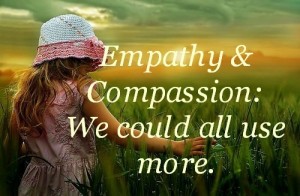 As I see it, these two behaviors have much in common, but they also have a vast difference. Merriam-Webster describes compassion as having a sympathetic consciousness of another’s distress along with a desire to alleviate it. The definition for empathy is much more detailed, but the point that stands out strongly to me is that it means to vicariously experience the thoughts and feelings of another. Empathy, therefore, takes compassion a step further. Some people believe that you can’t have empathy unless you have actually experienced what another person is going through. There’s no doubting that having actually gone through and survived something gives a person a great deal of empathy. That’s why we have support groups. That’s why a cancer survivor can offer a deeper level of compassion to a cancer patient than someone who has never been there.
As I see it, these two behaviors have much in common, but they also have a vast difference. Merriam-Webster describes compassion as having a sympathetic consciousness of another’s distress along with a desire to alleviate it. The definition for empathy is much more detailed, but the point that stands out strongly to me is that it means to vicariously experience the thoughts and feelings of another. Empathy, therefore, takes compassion a step further. Some people believe that you can’t have empathy unless you have actually experienced what another person is going through. There’s no doubting that having actually gone through and survived something gives a person a great deal of empathy. That’s why we have support groups. That’s why a cancer survivor can offer a deeper level of compassion to a cancer patient than someone who has never been there.
Empathy, however, is something that I believe we can acquire given the use of the enormous capacity of the human brain to simply imagine. We do it all the time when we read, watch movies, daydream. Who among us with the smallest degree of humanity cannot read a news story about some horrific event and not imagine what it might have been like if it had happened to us? Therefore, is it not possible to encounter the struggles and suffering of another human being and simply offer compassion at a deeper, more sensitive level that creates a human connection—if only for a moment—that helps lift the burdens of another in a productive and charitable way.
How Friends and Family Treated Job in the Bible
Going back to the story of Job, his friends make an interesting study of what helps and what definitely hinders the grieving process of one who is suffering. After Job has ten children killed in the same event, and loses all of his wealth and belongings, can we even imagine the weight of grief and sorrow he must have been experiencing? Then his wife tells him to “curse God and die.” Given that Job never lost his convictions regarding His belief in God, and he was earnestly striving to seek God’s help in understanding his trials, we can assume the marriage wasn’t giving him much support in that regard. When Job’s friends first come on the scene, they sit with him for seven days in silence. Amazing! Only a truly devoted friend would simply be with you and share your grief in such a way. But as Job’s problems worsened and he was afflicted with horrific health challenges, his friends began to show signs of their own weaknesses coming forward. Job is lectured by each of them about how he must have done something wrong to bring this kind of suffering upon himself; surely there must be something he could do to fix it. Talk about adding insult to injury! The thing is, I don’t know if any person has read this story with true intent and not wondered the same thing. As human beings, perhaps we want so desperately to find the reason for the suffering, because we can’t imagine how it would be so bad if someone wasn’t responsible. Perhaps we feel better when we can find a place to lay blame, or when we can find a solution that will fix it. When the suffering of others starts to make us squirm with discomfort, how do we respond? Can we continue to offer compassion—even empathy—or do we start digging for answers to questions that will make us feel better? Do we want a reason to be able to look away because our helplessness and sorrow on their behalf is too much to bear? Are we afraid that it could happen to us, therefore we need to dissect the problem in order to figure out what could be done to prevent such suffering?
Suffering is all around us. We all experience it in varying degrees, but we can all look around and see someone who has trials that we would never want to take upon ourselves, even if it meant being able to give up our own. There is obviously no measurement of what’s “fair” in this life. Fair is something that gets balanced out in the life to come. I think Job knew that, and with his faith in God, he was able to endure with that fact intact, even though he struggled to understand why this had happened to him.
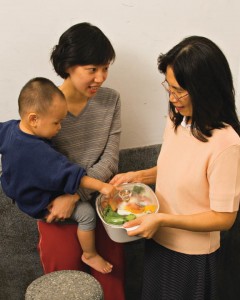 My own life has been an especially interesting case of suffering and struggling. I don’t declare that to seek out pity or attention. In fact, it’s quite the opposite. I prefer to keep my pain to myself, but I have often felt compelled to use my particular gifts to make others aware that the hardships of life are no respecter of persons. My health challenges have gone on for many years, and they are brutally complicated to a point that it’s impossible to explain to someone what’s going on inside of my body without taking an hour or two and perhaps using a PowerPoint demonstration. I could sum it up briefly by saying that I have Celiac Disease which went undiagnosed for so many years that it wreaked havoc on several body systems, and then a number of different doctors didn’t catch—or even look for—the long-term results of those damages, therefore it all just kept getting worse instead of better. Breast cancer was thrown into the mix as an added bonus, and it’s all topped off by my tendency to have chronic migraines as a manifestation of my poor health. The insidious and mysterious headaches seem to be my body’s way of screaming, “I’m not doing well! Help me!” But solutions are difficult, complicated, and it could take years to undo the damage. I have finally found a great doctor who is on top of every facet of what’s going on and I have hope of getting better. Still, the headaches remain somewhat of a mystery to him, even though he’s actively trying many different avenues of getting them to stop. While they are likely a result of all of the other problems, the other problems are slower improving because of the headaches. I’m a catch twenty-two of enormous proportions. My doctor has called my body a “perfect storm.” Since health problems have made it difficult to work, financial challenges have been on the heels of my continual struggles with pain, weakness, and extreme fatigue. It has also impacted the state of my home, every relationship in my life, and it has slowly eaten away at my identity as a wife, mother, homemaker, public speaker, writer, and author. Hence, Job is one of my dearest friends.
My own life has been an especially interesting case of suffering and struggling. I don’t declare that to seek out pity or attention. In fact, it’s quite the opposite. I prefer to keep my pain to myself, but I have often felt compelled to use my particular gifts to make others aware that the hardships of life are no respecter of persons. My health challenges have gone on for many years, and they are brutally complicated to a point that it’s impossible to explain to someone what’s going on inside of my body without taking an hour or two and perhaps using a PowerPoint demonstration. I could sum it up briefly by saying that I have Celiac Disease which went undiagnosed for so many years that it wreaked havoc on several body systems, and then a number of different doctors didn’t catch—or even look for—the long-term results of those damages, therefore it all just kept getting worse instead of better. Breast cancer was thrown into the mix as an added bonus, and it’s all topped off by my tendency to have chronic migraines as a manifestation of my poor health. The insidious and mysterious headaches seem to be my body’s way of screaming, “I’m not doing well! Help me!” But solutions are difficult, complicated, and it could take years to undo the damage. I have finally found a great doctor who is on top of every facet of what’s going on and I have hope of getting better. Still, the headaches remain somewhat of a mystery to him, even though he’s actively trying many different avenues of getting them to stop. While they are likely a result of all of the other problems, the other problems are slower improving because of the headaches. I’m a catch twenty-two of enormous proportions. My doctor has called my body a “perfect storm.” Since health problems have made it difficult to work, financial challenges have been on the heels of my continual struggles with pain, weakness, and extreme fatigue. It has also impacted the state of my home, every relationship in my life, and it has slowly eaten away at my identity as a wife, mother, homemaker, public speaker, writer, and author. Hence, Job is one of my dearest friends.
Again, my point in stating all of this is not to solicit pity. It is rather a very personal case study on the value of compassion and empathy. And I’m not just talking about the kindness offered to me by others, but also the kindness I offer to others. Being in pain does not give me any excuse to be unkind to any person I encounter—especially not the ones who live under the same roof with me and have to put up with my being glued to my bed month after month. It’s vital for me to muster up compassion—and even empathy—for what it must be like for them. I’ve never lived with someone who has suffered so much for so long, so I can’t really know what that’s like, but I can imagine it, and I know it can’t be easy.
How Can You Help a Person Through a Trial?
 As for the way that other people behave toward me, I’ve seen it all. I found it interesting that when I had six surgeries in one year (with an enormous house flood and required reconstruction right in the middle) the people around me were more forthcoming with kindness and efforts to help. These were very black and white challenges that people could understand. But when my suffering went on and on with no way to grasp the reasons, people began to distance themselves more from me, become awkward in talking to me, and many, many people have given me well-intended advice and solutions that were in reality based in ignorance and an obvious attempt to ease their own discomfort; some things have been said to me that were downright cruel—wolf words delivered in lamb’s wool, so to speak. I can’t count how many times people have boldly shared with me their solution to my problem, certain if I would just take their advice it would solve everything. I wish sometimes that I could go back and redo more than a hundred conversations by asking these well-meaning individuals to explain exactly how my disease works and what it means, and if they could do that I would be happy to listen to their suggestions.
As for the way that other people behave toward me, I’ve seen it all. I found it interesting that when I had six surgeries in one year (with an enormous house flood and required reconstruction right in the middle) the people around me were more forthcoming with kindness and efforts to help. These were very black and white challenges that people could understand. But when my suffering went on and on with no way to grasp the reasons, people began to distance themselves more from me, become awkward in talking to me, and many, many people have given me well-intended advice and solutions that were in reality based in ignorance and an obvious attempt to ease their own discomfort; some things have been said to me that were downright cruel—wolf words delivered in lamb’s wool, so to speak. I can’t count how many times people have boldly shared with me their solution to my problem, certain if I would just take their advice it would solve everything. I wish sometimes that I could go back and redo more than a hundred conversations by asking these well-meaning individuals to explain exactly how my disease works and what it means, and if they could do that I would be happy to listen to their suggestions.
Since Celiac Disease requires an intensely strict diet that completely eliminates gluten, I’ve had more than one person tell me something like, “I know just how you feel. I once went without carbs for months.” In such conversations I have bitten my tongue from telling these people that I can’t eat a salad if the vegetables were rinsed in the same plastic colander used for rinsing pasta, even if it’s been through the dishwasher, because gluten molecules can make me sick, and they can hide in plastic pores, even with thorough cleaning. The point being that I’ve come to learn that there are moments when you can share information with someone that will help them gain some perspective on their own lives, but there are times when it’s better left unsaid, because they simply aren’t interested in hearing what I might desperately want to say. I tend to talk too much when I feel nervous or put on the spot, and I’ve come away from many conversations feeling like I’ve over-explained myself to the point of coming off as a fool, and then I regret it. Sometimes silence truly is golden. We all wish we could go back and redo conversations that were full of misunderstanding and caused potential hurt feelings. But we can’t go back; we can only learn and move forward. And move forward we must.
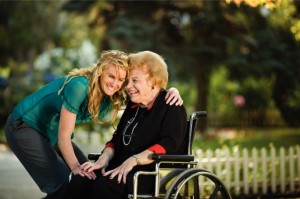 I’ve realized through these many experiences that it’s not my place to be angry or offended in response. If I feel that way, then I need to deal with it appropriately and move on. In most cases, I have no way of knowing if their words were motivated in genuine kindness, or if they came from some kind of selfish agenda. That’s not for me to decide, because I couldn’t possibly. Sometimes it requires a followup conversation to clarify and to help them understand; and sometimes it requires just letting it go. While I often feel desperately in need of compassion and empathy from others, I have come to learn more and more how much others need compassion and empathy from me, even if it’s only the way I think and feel toward my fellow human beings. I could lay here in this bed and rot away in anger and bitterness if I chose to focus on all the negatives of what’s happened to my life and how people behave toward me because of it. Or I can focus on my own spiritual and emotional growth and learn to live in a place of peace.
I’ve realized through these many experiences that it’s not my place to be angry or offended in response. If I feel that way, then I need to deal with it appropriately and move on. In most cases, I have no way of knowing if their words were motivated in genuine kindness, or if they came from some kind of selfish agenda. That’s not for me to decide, because I couldn’t possibly. Sometimes it requires a followup conversation to clarify and to help them understand; and sometimes it requires just letting it go. While I often feel desperately in need of compassion and empathy from others, I have come to learn more and more how much others need compassion and empathy from me, even if it’s only the way I think and feel toward my fellow human beings. I could lay here in this bed and rot away in anger and bitterness if I chose to focus on all the negatives of what’s happened to my life and how people behave toward me because of it. Or I can focus on my own spiritual and emotional growth and learn to live in a place of peace.
Obviously I could create a very long list of all the things you should not say to someone who is dealing with chronic suffering, for whatever reason. I prefer instead to share a good example that happened just a few days ago. I had scraped myself out of bed and managed to make myself look presentable in order to get to the orientation meeting to prepare for high school registration for my daughter. Since she’s my youngest and my children are spread out over many years, I’m already one of the older junior high moms, and I don’t want to show up looking like frump mom. As if she doesn’t already have enough to overcome in living with a mother who hardly gets out of bed and is rarely an active participant in her teenaged life. So, I got through the meeting and was looking forward to getting back to my bed, when a woman in my neighborhood approached me, gave me a hug, and said that it was good to see me. She told me I looked good, then said simply, “I hear you’ve been really sick.” In contrast, if she had done what most people normally do and asked me what’s been going on, I would have been stammering some kind of explanation that cannot be explained in two minutes and only leaves me feeling somewhat freakish. I was able to answer very comfortably, “Yes, it’s been rough, but I am very blessed.” She expressed hope that I would get feeling better, and I felt an openness and genuine concern from her that gave me the unspoken option to share more if I wished, but didn’t make me feel like I had to explain in order to make her feel more comfortable. We walked out of the building together, talking about our daughters going to high school, our grandchildren, and the things we had to be grateful for. She walked me to my car and gave me another hug, and I went home feeling like I’d actually had some human interaction without being defined by my illness.
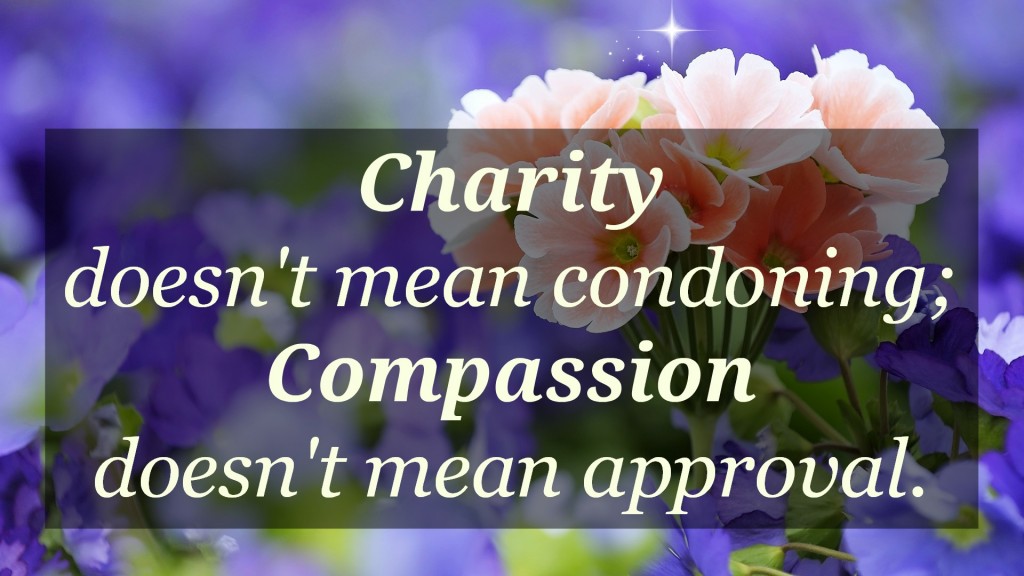 I pray every day for healing miracles, and for my “captivity” to be turned, as it was for Job. I know God has a plan for me, and these experiences are not random, nor are they any kind of punishment. Someday I will understand, and in the meantime I will strive to gain more compassion and empathy for others—as well as for myself. Being patient with oneself can be a great learning experience all on its own.
I pray every day for healing miracles, and for my “captivity” to be turned, as it was for Job. I know God has a plan for me, and these experiences are not random, nor are they any kind of punishment. Someday I will understand, and in the meantime I will strive to gain more compassion and empathy for others—as well as for myself. Being patient with oneself can be a great learning experience all on its own.
In the end of Job’s story, there are no obvious answers of what changed to release him from his captivity. He repents, but of what exactly? He acknowledges God’s power and presence more fully than he had before. We could all do with more of that. But I believe Job’s true change of heart is personal to Job, and that’s why the story is slightly cryptic over what happened exactly. The bottom line was that he realized he needed to trust God completely because God knew what He was doing, even though Job in his weak state of humanity couldn’t possibly understand. We as human beings don’t need to understand the suffering of another person in order to offer genuine compassion and sincere empathy. It just takes a little effort, a little bit of reaching beyond the outward appearance of a situation, and the limited facts that we might have. Even with those people we know well, no other human being can fully know the heart and mind of another. But we can still be charitable and kind. Even if a person has made choices to bring some degree—or all—of their suffering upon themselves, we can still be compassionate. Charity doesn’t mean condoning; compassion doesn’t mean approval. Humanity would be a much better race if we as individuals could learn to distinguish that difference and act on it appropriately.
About Anita Stansfield
Anita Stansfield began writing at the age of sixteen, and her first novel was published sixteen years later. For more than fifteen years she has been the number-one best-selling author of women’s fiction in the LDS market. Her novels range from historical to contemporary and cover a wide gamut of social and emotional issues that explore the human experience through memorable characters and unpredictable plots. She has received many awards, including a special award for pioneering new ground in LDS fiction, the Lifetime Achievement Award from the Whitney Academy for LDS Literature, and also a Lifetime Achievement Award from her publisher, Covenant Communications. She has fifty-six published books. Anita is the mother of five, and has three grandchildren.

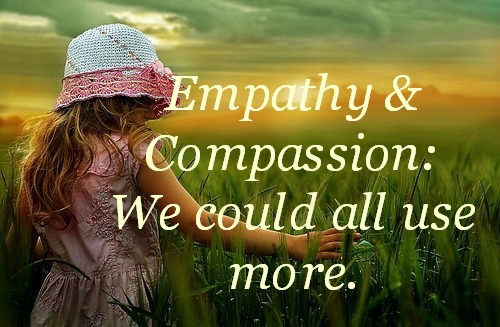

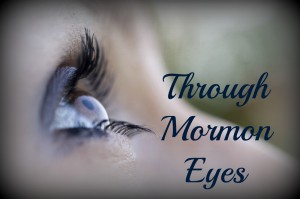






Wow–that was very insightful. Thank you for being so honest and posting those thoughts. We can all use those words for those in our own world who have struggles.
I really appreciate your understanding of empathy. How limited we would be if we only understood people who had been through exactly what we have been through…as if sickness that wasn’t on tuesday in the morning, would be completely different than Saturday evening. We have felt pain, and loneliness and frustration…we can use our imagination and our experience of basic human emotions..to love. If our imagination fails…we can sit in silence.
hugs to you.
thank you for sharing.
Thank you for this, it was very relevant for me today. I lost an old friend to what appears to have been a drug overdose and I just naturally felt such empathy and compassion for his family. I expressed my love and sympathy and the memories of happier times, while some others, for some reason beyond my understanding felt the need to point out that his choices had gotten him there. His sister thanked me for my kind words and I am glad that I was able to bring some form of comfort. I didn’t really reflect on this until reading your post.
I enjoyed reading this today as I’ve personally been on a quest to learn to be more empathetic. Thanks for being so open and for the insights. I also had undiagnosed Celiac for years so I feel some of your pain! I hope your recovery has been going well.